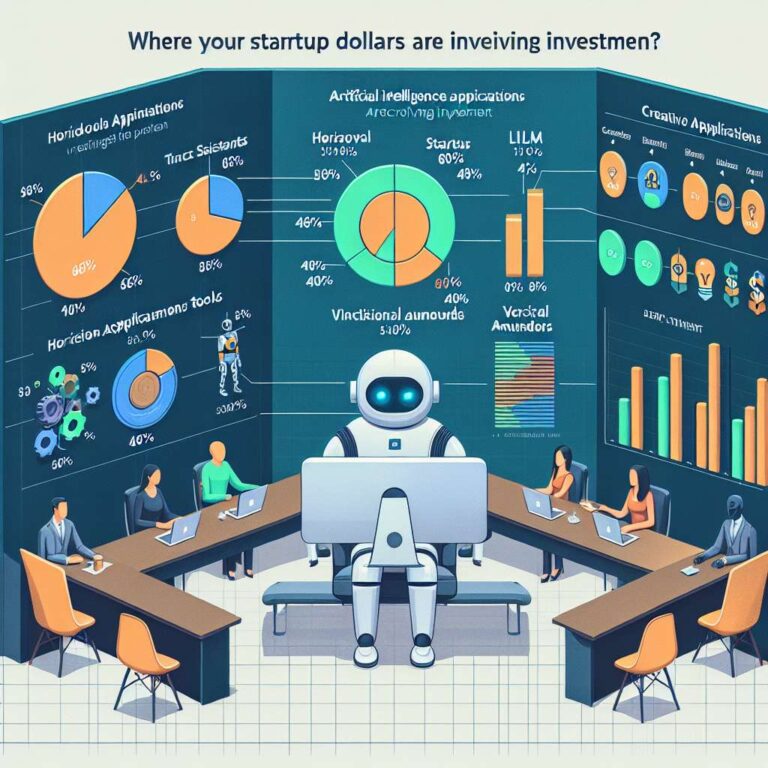Andreessen Horowitz, working with Mercury, analyzed transaction data from more than 200,000 Mercury customers to identify the top 50 artificial intelligence-native application layer companies by spend from June through August 2025. Unlike infrastructure vendors, these rankings reflect where startups are actually buying artificial intelligence capabilities in products and workflows. Methodology notes: cloud, GPU, and infrastructure tools were excluded; spend tallied for Google includes both Google Cloud and Gemini; the dataset covers Mercury-facilitated transactions such as ACH, IO card spend, and wires, and does not capture non-Mercury card spend or personal accounts.
Horizontal applications account for 60 percent of the list versus 40 percent for vertical tools. General LLM assistants dominate horizontal spend, led by #1 OpenAI and #2 Anthropic, with #12 Perplexity and #30 Merlin AI also appearing. Workspaces that bring LLMs into context are gaining traction, including #10 Notion and #33 Manus, suggesting the category is still competitive rather than winner-takes-all. Meeting support tools form another major horizontal cluster: #7 Fyxer (also drafts email), #36 Happyscribe, #38 Plaude (a hardware pin maker), #41 Otter AI, and #49 Read AI. Creative tools emerged as the single largest category with ten entries, led by Freepik (#4) and ElevenLabs (#5); image and video standouts include Canva, Photoroom, Midjourney, Descript, Opus Clip, and Capcut. Avatar-focused tools are rising too, with #47 Arcads for ads and #50 Tavus for broader use cases.
On the vertical side, most products currently augment human workers rather than replace them: 12 of 17 vertical companies enhance roles, while five pitch themselves as end-to-end “artificial intelligence employees” (#27 Crosby Legal, #34 Cognition, #37 11x, #39 Serval, #42 Alma). Popular vertical categories include customer service (Lorikeet #8, Customer.io #14, Ada #40, Crisp #46), sales and GTM (Instantly #13, Clay #25, 11x #37), and recruiting and HR (Micro1 #9, Metaview #19, Applaud #43). “Operations” entrants include Delve (#11, compliance automation) and Combinely (#29, accounting). The authors expect more agentic, end-to-end products and artificial intelligence-native services to appear as startups “hire” software instead of locking into traditional providers.
Vibe coding has clearly crossed into the enterprise. Four app-building platforms made the list (Replit, Cursor, Lovable, Emergent), with Replit ranking #3 behind only the two leading model providers. While Lovable ranked higher than Replit on a consumer web-traffic list, Mercury spend shows Replit generating roughly 15 times Lovable’s revenue among examined customers, likely due to Replit’s enterprise-grade app and agent development, autonomous Agent, built-in services (databases, authentication, secure publishing), and enterprise controls. Whether the space fragments by app type or converges around a few winners remains an open question.
A broader go-to-market shift is also underway: nearly 70 percent of the ranked companies can be adopted by individuals and later expanded into teams. Twelve also appeared on the firm’s Consumer Top 100, and 11 began as individual-first tools before adding team or enterprise features. Several still derive the majority of revenue from consumers (including #26 Cluely and #28 Midjourney). Even the largest model providers exhibit this pattern: as of last October, OpenAI reported roughly 75 percent consumer revenue, with more recent estimates closer to a 50-50 split. The authors expect more consumer-first products to move upmarket even earlier in their lifecycle.

